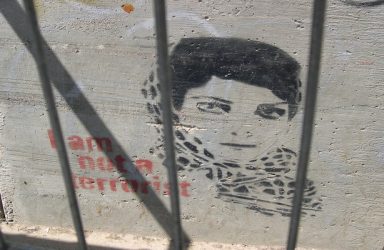Freedom of Religion and Access Control in Israel
State religions should not be instrumentalised to exploit the freedom and rights of religious minorities masked by state rhetoric.
Forgetting Politics: The Impossibility of Humanitarian Intervention
‘Humanitarian military intervention’ is critiqued as a de-politicizing discourse, with four proposals for re-politicization suggested.
Explaining Russia’s Intervention in Syria in September 2015
Instead of giving an empirical account of the factors that led to Russia’s intervention, it’s important to explore the extent to which IR theory explains such a calculus.
‘Children of the Stones’: The Securitization of Palestinian Children by Israel
To understand the complex and highly subtle securitization of Palestinian children by the Israeli state requires going beyond the Copenhagen School’s analysis framework.
Challenges and Opportunities for Walzer’s “Jus ad Vim” for the 21st Century
“Jus ad vim” undoubtedly has a role in the ethical evaluation of military and government activities, especially in the realm of emerging technology such as drones.
Monetary Sovereignty under the Gold Standard – The Case of the Ottoman Empire
Increasing indebtedness and severe crises caused the Ottoman Empire to lose monetary sovereignty, culminating with the adoption of a limping gold standard.
The Three Images of the Syrian Civil War
Employing Waltz’s three images in ‘Man the State and War’ as a methodological framework helps guide analysis of the Syrian civil war, but fails to provide direct answers.
Revisiting Political Culture: Libyan and Tunisian Post-Revolutionary Transitions
Analysing Libya & Tunisia reveals the important role of political culture in their democratic transitions & the pitfalls of applying ‘universal’ democratic institutions.
Is Rentier State Theory Sufficient to Explain the Politics of the UAE?
Because Rentier State Theory insufficiently explains the politics of the UAE, a marrying of Constructivism and RST are needed to best capture the politics of the UAE.
Hasan al-Banna and the Political Ideologisation of Islam in the 20th Century
Hasan al-Banna, founder of the Egyptian Muslim Brotherhood, has played a significant role in the political ideologisation of Islam in the twentieth century.













